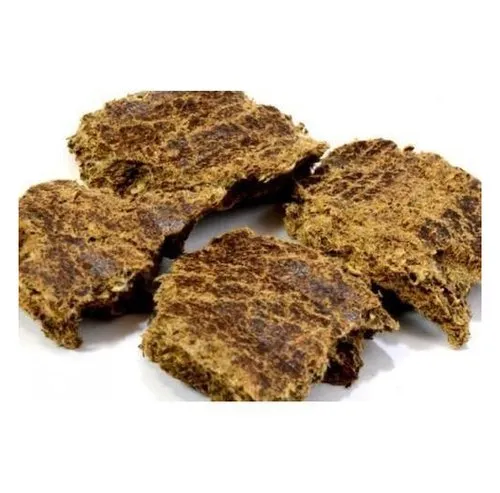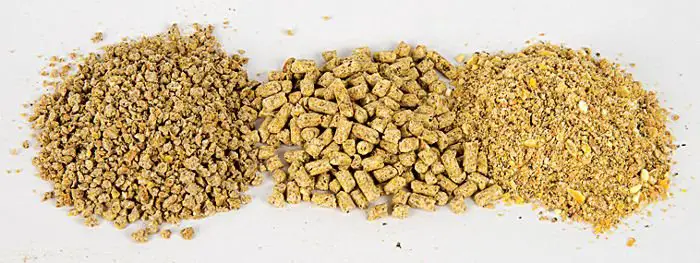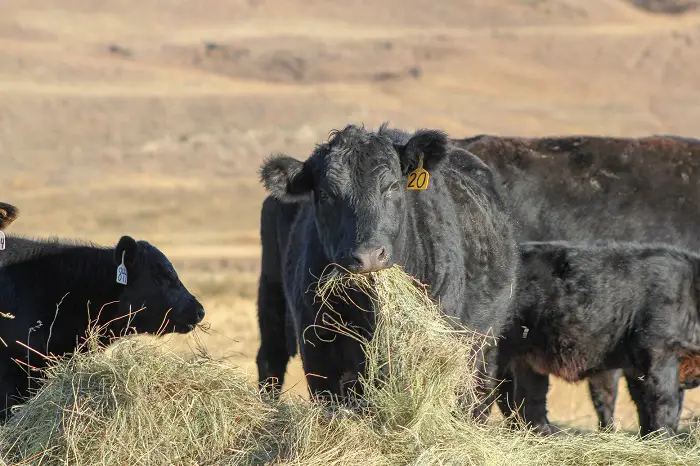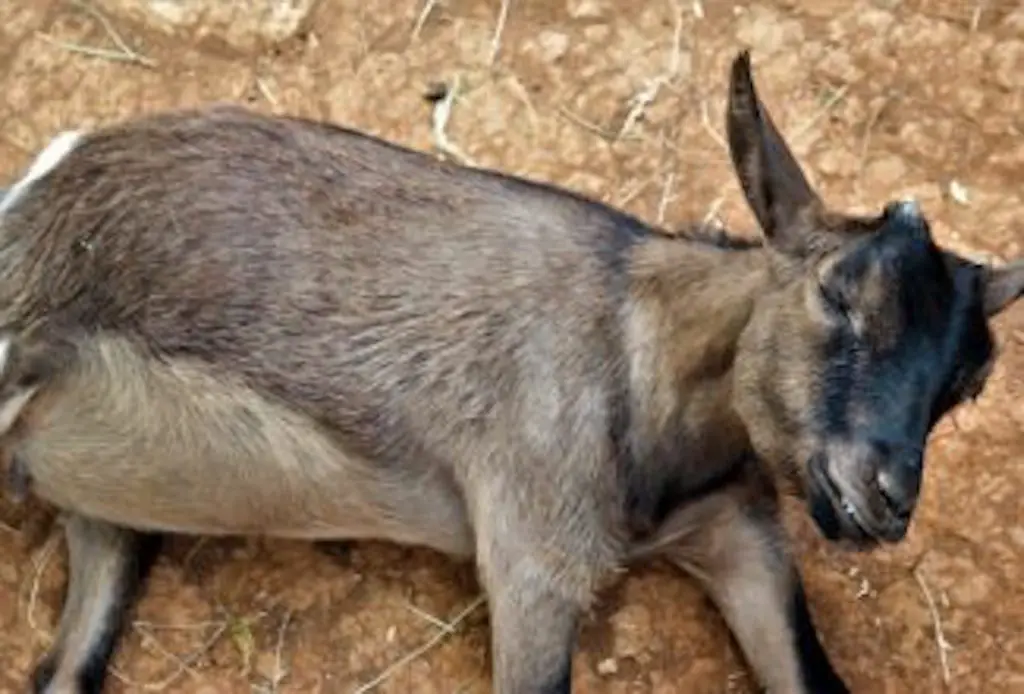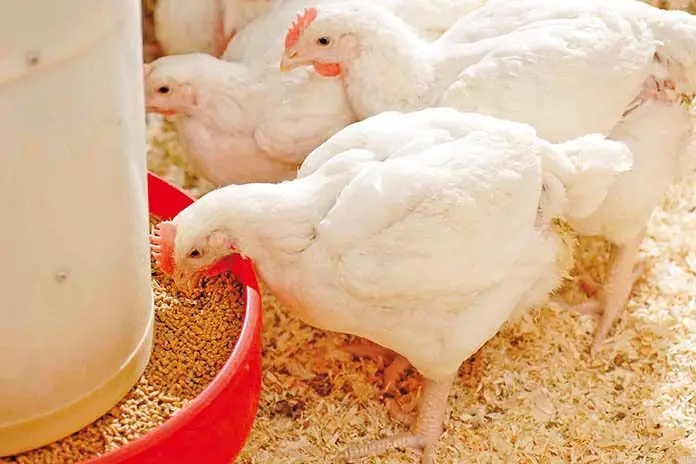Cotton cake also known commonly as cottonseed cake is the by-product of extraction of oil from cotton seeds. Due to cottonseed cake’s nutritional content, it is mostly used as a protein supplement in animal feed replacing the other common protein supplements like soybean meal in feed rations. Cottonseed has been found to be rich in many other nutritional elements besides proteins which makes an important element in animal feed.
To have a better understanding of cotton cake, a protein supplement for animal feed we need also to appreciate how the cake is produced from its raw materials. It is equally important for us in this article to look at the nutritional composition of the cotton cake to try and find it’s suitability for animal feeding. Further to that we shall also uncover the effects of using cotton cake as an animal feed both advantages and disadvantages.
Contents
Cotton Cake Nutritional Content
Cotton cake is well known as a good substitute of other protein supplements for different animal feeding. Cotton cake is rich in essential nutritional elements which makes it a suitable replacement for protein supplements in animal feeds. Below is information about cotton cake nutritional content.
- Crude protein (25.3%).
- Neutral detergent fiber (54.2%).
- Acid detergent fiber (38.5%).
- Rumen Undegradable Protein (54%)
- Cellulose (29.5%).
- Ether extract (24.6%).
Cotton cake for animal feed has been found to have a lower rumen degradability compared to other protein supplements making it a good source of bypass protein for dairy cows. Cotton cake is very rich in fiber, energy, phosphorus and vitamin E. All these are important dietary needs for many animals. This nutritional content is very much dependent on the method used to extract the oil and the proportion of lint and husk.
Advantages Of Cotton Cake In Animal Feed
There are many advantages that can be derived from use of cotton cake as a replacement for other protein supplements in animal feed as discussed below.
- Cotton cake may be a cheaper and easy option for replacing commercial animal feeds especially for farmers involved also in cotton farming. Since in many cases animal farmers have challenges in maintaining a healthy diet for their animals, cotton cake has been found to be a better option in terms of cost and diet content.
- Cotton cake is rich in proteins, vitamins, minerals, fiber and phosphorus which makes it a highly nutritious animal feed. It can be very useful particularly for cattle farmers by providing the essential nutrients required for growth and health of animals.
- It can be an important diet component for milk production due to its superior nutrient composition. Various research shows that animals that has cotton cake as part of their diet produce more milk which is important for new born animals.
- Nutritional value of cotton cake also makes it an important diet component for physical development of animals. It is rich in protein which is the essential nutrient for growth and physical development of animals. A comparison of cotton cake with other protein supplements suggested that animals fed from cotton cake were more productive and matured fast compared to others.
- Additionally, cotton cake allows production of good quality meat due to the considerable amount of digestible nutrients. At the markets, a very good value may be extracted from animals that feeds on cotton cake.
- It contains a considerable amount of minerals that boost bone growth resulting in strong animals.
There are many other advantages of using cotton cake for animal feed in addition to the list above. However, we also need to look at the disadvantages of using cotton cake for animal feed.
Challenges Of Cotton Cake For Animal Feed
Despite the benefits mentioned above for cotton cake for animal feed, there are also negative effects that can be caused by cotton cake. The major issue with cotton cake is that it has been found to be highly toxic if given in excess to animals. It contains a compound gossypol which can lead to intoxication, reproductive problems and liver damage in animals. Proper feeding plan is required to make sure that animals are not exposed to risks of overdose of this protein supplement. Research shows that younger animals are more likely to be susceptible to this effect compared to mature animals.
How To Feed Cotton Cake To Animals
The fact that cotton cake can be dangerous to animals if given in excess calls for a feeding plan that ensures animals benefit more from the consumption of the feed without compromising their health. It is usually recommended that all animals that are fed with cotton cake be limited in their rations. Continuous uncontrolled feeding of animals with cotton cake may result in serious ill-health conditions as explained. Cotton cake feed should be limited, rotational and gradually given so that animals may adapt to the feed. You are always recommended to feed and combine with other different animal feeds.
Is It Recommended To Feed Animals Cotton Cake
Cotton cake is a highly nutritious diet for many animals. Sheep, goats and cattle are some of the animals that can be fed from cotton cake especially cattle for milk production and beef. Cotton cake is recommended to be used as a protein supplement for animal feed in places of soybean meal and other protein supplements. It is also recommended on the basis of its mineral and vitamin content which are essential elements for good animal healthy. However, certain restrictions or feeding plans and schedule should guide the use of this animal feed type. Provided cotton cake is used within the feeding guidelines provided, it is a recommended animal feed that can results in healthy and strong animals. It is however not mandatory that every animal owner has to use it, it’s purely optional for every individual.
Conclusion
It can be seen without doubt that cotton cake is an essential part of any animal diet particularly for domesticated animals. Use of this feed for your animal should be strictly monitored with a knowledgeable person to avoid animal poisoning.
